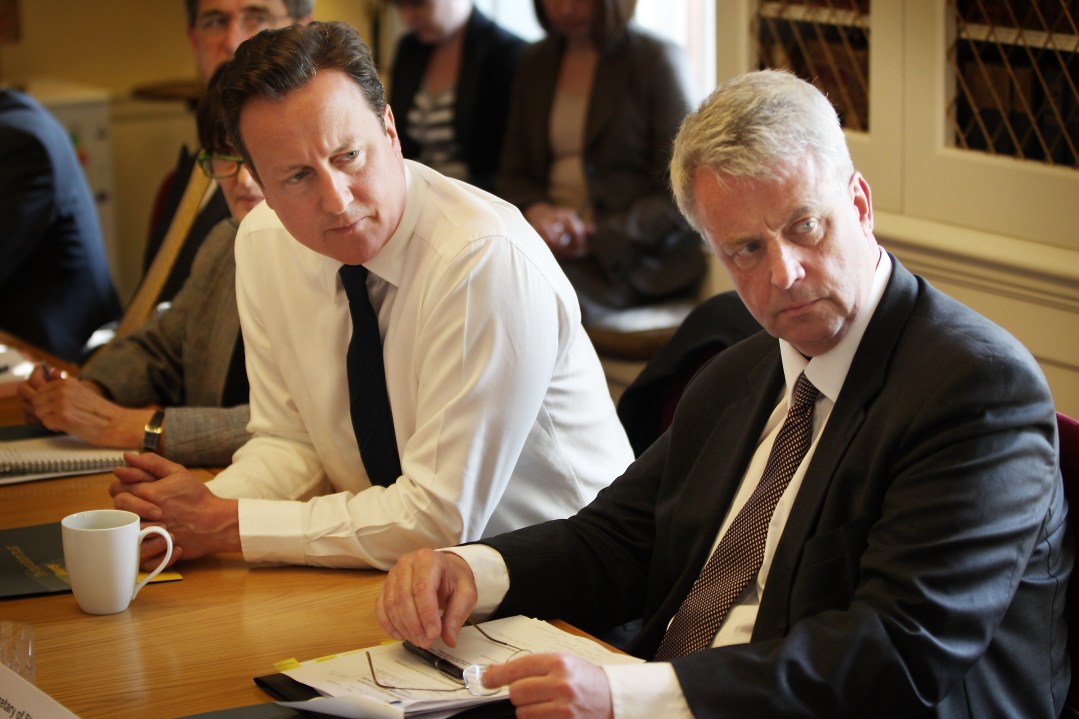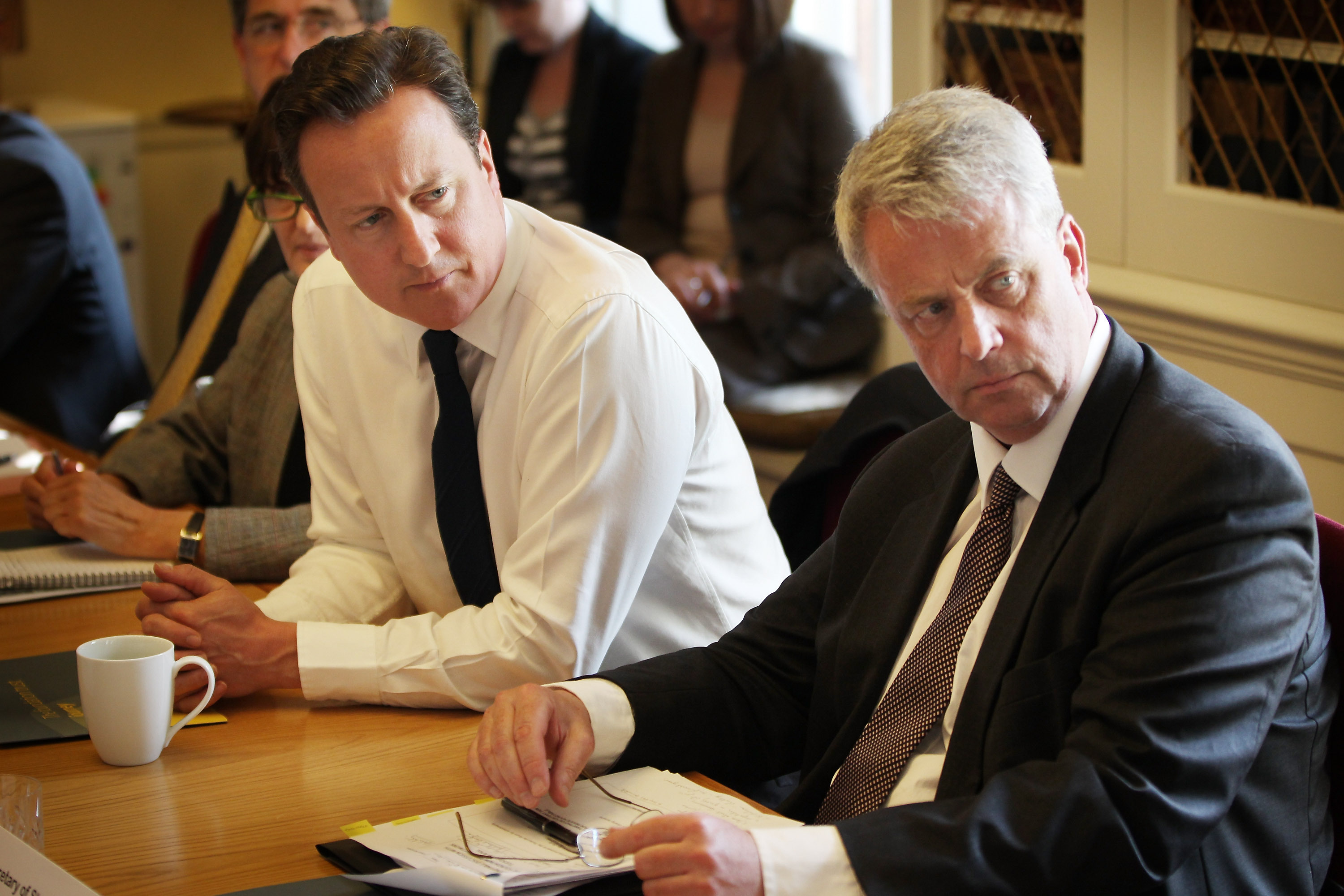Andrew Lansley should be grateful for small mercies. Rachel Sylvester’s column (£) today may quote a Downing Street source to the effect that ‘Lansley should be taken out and shot’, but there is yet no sign that a hundred Conservative MPs will write to the Prime Minister to say that the Health Secretary’s reforms have to stop. We’ve had such a letter for wind farms and for Europe, but on the NHS it’s not very likely. Most Tory MPs find the NHS a difficult rallying point at the best of times. And these are the worst: they are acutely embarrassed by the car-crash that has been the Health and Social Care Bill, and dearly want the whole thing just to go away. Besides, you try finding a hundred of them who actually know what these health reforms are about.
For the moment, atavistic Conservative backbenchers can keep on after David Cameron’s other vulnerable parts, while the health reforms founder up the corridor. Tomorrow, peers will get another chance to chew upon the twitching remains of Mr Lansley’s Bill, an event for which the Health Secretary has prepared something approaching 150 further government amendments. These should complete the task that he has been working on for the last nine months: removing from his legislation anything that makes it remotely interesting, radical or useful.
The return of the Bill to the Lords has excited Ed Miliband into redoubling Labour’s call for the whole thing to be scrapped. The Labour leader unpacked all the old cliches for the occasion. In the Observer on Sunday, he declared that there were just three months left to save the NHS, raising the intriguing question of which goes first, the health service or the euro.Yesterday, we learned that cost savings from abandoning the legislation would enable the NHS to take on another 6,000 nurses. If, down the years, policy makers had only been sensible enough to stop everything they were doing when told to do so, and spend the money instead on nurses, I estimate that some 90 per cent of the working population would now be employed in that capacity.
Mr Miliband’s figures don’t stand up to any kind of scrutiny, but, of course, they are not intended to. For one thing, a large proportion of the costs associated with Mr Lansley’s top-down-reorganisation-that-isn’t are already sunk. The new health commissioning structures that his Bill will legitimise are multiplying in shadow form: the outlines of 95 per cent of them have already been established. Their predecessor organisations — primary care trusts and strategic health authorities — have been merged and abolished. Sado-reformists like to call this sacking bureaucrats: more often than not it means launching them with fat redundancy cheques onto a long looping trajectory that will lead eventually back to employment by the NHS. Meanwhile, the Health Select Committee concludes that it is too early to tell whether any serious progress has yet been made towards achieving the £20 billion of cumulative efficiency savings the NHS needs to achieve by the end of this Parliament to keep afloat. That’s all right though: after all, it is only a couple of years since NHS chief executive David Nicholson launched his famous challenge.
The Guardian yesterday was the first (I think) to liken the health reforms to the poll tax. The comparison works on several levels. Guardian types might feel that the two policies are evenly-matched in terms of their malignant impact and wicked intent. But, for the rest of us, the comparison relates to what each case tells us about the processes of government and, specifically, the failure of the political regulator in the system to prevent the steam engine of policy from running out of control. In both cases, the agony arising from the reform has been far greater than that associated with the problem it was supposed to rectify. And, in both cases, the problem has come from Number 10. With the poll tax, it was a sin of commission: Mrs Thatcher’s unbending obsession with replacing the rates at any cost. With the health reforms, the sin was in the omission: the failure of the Prime Minister and his advisers to tell Andrew Lansley to stop trying to be a reforming superhero, calm down and to sort the NHS out by stealth, not with a sledgehammer.
It is a failure from which no one emerges with any credit. Not the prime minister for the reason just given; not Mr Lansley for his singular inability either to articulate what his reforms are for, or, if he wanted to be radical, to stick with his radical prescription; and not the opposition either. Labour’s reaction to the Bill has been confused and inconsistent throughout. As for the assorted royal colleges, health unions, pressure groups and other outposts of the vested interest, they have confirmed through their opportunistic opposition and outrageous over-exaggeration that they are no friends of either the patient or the taxpayer. Any policy prescription, short of just giving them the money and letting them get on with it, meets with the full force of their self-serving resistance.
Tony Blair, for all his faults, knew that the NHS needed reform as well as investment. He had the political guile to carry it off. The NHS is badly missing that today.
Richard Marsh is a former special adviser to two Conservative Secretaries of State for Health.







Comments